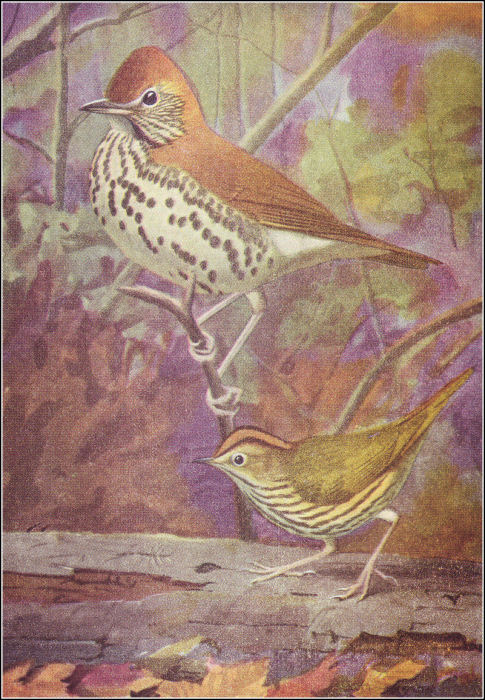Fairy Tales Too Good To Miss—Around the Fire by Lisa M. Ripperton
Tit for Tat
T
HERE once lived a camel and a jackal who were great friends.
One day the Jackal said to the Camel: "I know that
there is a fine field of sugar cane on the other side
of the river. If you will take me across, I'll show
you the place. This plan will suit me as well as you.
You will enjoy eating the sugar cane, and I am sure to
find many crabs, bones, and bits of fish by the
riverside, on which to make a good dinner."
![[Illustration]](http://www.gatewaytotheclassics.com/gold/books/ripperton/ft0601/anderson_briarrose_titfortat01.gif)
The Camel consented and swam across the river, taking
the Jackal, who could not swim, on his back. When they
reached the other side, the Camel went to eating the
sugar cane, and the Jackal ran up and down the river
bank devouring all the crabs, bits of fish, and bones
he could find.
But being so much smaller an animal, he had made an
excellent meal before the Camel had eaten more than two
or three mouthfuls; and no sooner had he finished his
dinner than he ran round and round the sugar-cane
field, yelping and howling with all his might.
The villagers heard him, and thought: "There is a
jackal among the sugar canes; he will be scratching
holes in the ground and spoiling the roots of the
plants." And they all went down to the place to drive
him away. But when they got there they found to their
surprise not only a jackal, but a camel
who was eating the sugar canes! This made them very
angry, and they caught the poor Camel and drove him
from the field and beat and beat him until he was
nearly dead.
When they had gone, the Jackal said to the Camel, "We
had better go home." And the Camel said: "Very well;
then jump upon my back as you did before."
So the Jackal jumped upon the Camel's back, and the
Camel began to recross the river. When they had got
well into the water the Camel said: "This is a gritty
way in which you have treated me, friend Jackal. No
sooner had you finished your own dinner than you must
go yelping about the place loud enough to arouse the
whole village, and bring all the villagers down to beat
me black and blue, and turn me out of the field before
I had eaten two mouthfuls! What in the world did you
make such a noise for?"
"I don't know," said the Jackal. "It is a habit I
have. I always like to sing a little after dinner."
The Camel waded on through the river. The water
reached up to his knees—then above them—up,
up, up, higher and higher, until he was obliged to
swim. Then turning to the Jackal he said, "I feel very
anxious to roll." "Oh, pray don't; why do you wish to
do so?" asked the Jackal. "I don't know," answered the
Camel. "It is a habit I have. I always like to have a
little roll after dinner." So saying, he rolled over
in the water, shaking the Jackal off as he did so. And
the Jackal was drowned, but the Camel swam safely
ashore.
|

![[Illustration]](http://www.gatewaytotheclassics.com/gold/books/ripperton/ft0601/anderson_briarrose_titfortat01.gif)